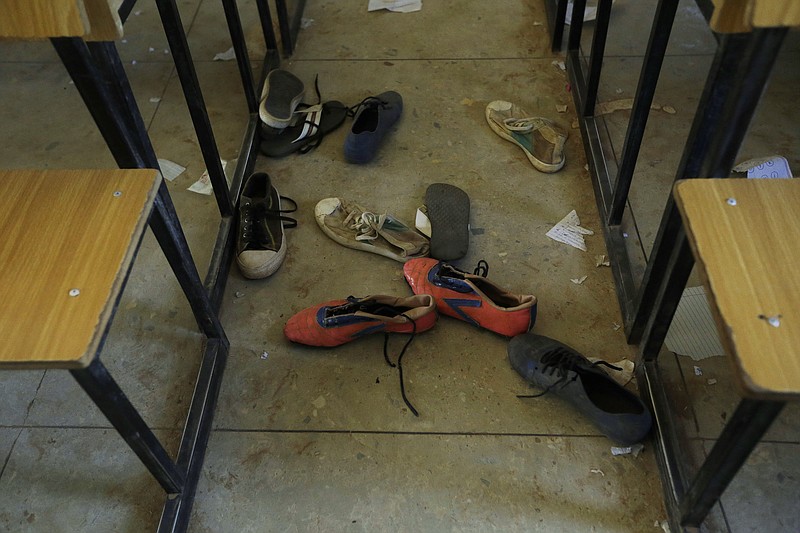NAIROBI, Kenya -- The new global epicenter of violent Islamic extremism is sub-Saharan Africa, where people are drawn to extremist groups increasingly as a result of economic factors and less for religious ones, according to a new report by the U.N.'s international development agency.
92% of new recruits to extremist groups are joining for better livelihoods, a significant increase when compared with the motivations of those interviewed in a previous report released in 2017, according to the report released Tuesday. Many Africans' lives have been badly affected by the covid-19 pandemic, high inflation, and climate change, said the report.
There has been a 57% decrease in the number of people joining extremist groups for religious reasons, it said.
Nearly 2,200 people in eight African countries -- Burkina Faso, Cameroon, Chad, Mali, Niger, Nigeria, Somalia and Sudan -- were interviewed for the report. More than 1,000 interviewees are former members of violent extremist groups, both voluntary and forced recruits, said the report.
At least 4,155 attacks across Africa were documented since in 2017, said the report. In these attacks, 18,417 deaths were recorded in the continent with Somalia accounting for the largest number of fatalities.
"Sub-Saharan Africa has become the new global epicenter of violent extremism with 48% of global terrorism deaths in 2021," agency Administrator Achim Steiner said in a press briefing ahead of the report's launch.
This surge in extremism in Africa "not only adversely impacts lives, security and peace, but also threatens to reverse hard-won development gains for generations to come," he said.
Military campaigns to stamp out extremism are not proving to be successful, said Steiner.
"Security-driven counter-terrorism responses are often costly and minimally effective, yet investments in preventive approaches to violent extremism are woefully inadequate," he said.
About 71% of those who joined extremist groups were influenced by human rights abuses by state security forces, such as the killings or arrests of family members, said the report.
Security forces in some sub-Saharan countries have been accused of brutality and extrajudicial killings and weak judicial systems give victims little hope for justice, it said.
"Research shows that those who decide to disengage from violent extremism are less likely to rejoin and recruit others," said the report.
"This is why it's so important to invest in incentives that enable disengagement," said Nirina Kiplagat, a UNDP specialist in preventing violent extremism in Africa.
The UNDP report recommends better basic services including child welfare, education, and quality livelihoods to prevent people from voluntarily joining extremist groups. It also urged the creation of more exit opportunities and investment in rehabilitation and community-based reintegration services.
Information for this article was contributed by Chinedu Asadu of The Associated Press.
 FILE - Nigerian soldiers drive past Government Science secondary school in Kankara , Nigeria, Wednesday, Dec. 16, 2020. The new global epicenter of violent Islamic extremism is sub-Saharan Africa where people are increasingly joining because of economic factors and less by religious ones, according to a new report by the U.N.'s international development agency. (AP Photo/Sunday Alamba, File)
FILE - Nigerian soldiers drive past Government Science secondary school in Kankara , Nigeria, Wednesday, Dec. 16, 2020. The new global epicenter of violent Islamic extremism is sub-Saharan Africa where people are increasingly joining because of economic factors and less by religious ones, according to a new report by the U.N.'s international development agency. (AP Photo/Sunday Alamba, File)